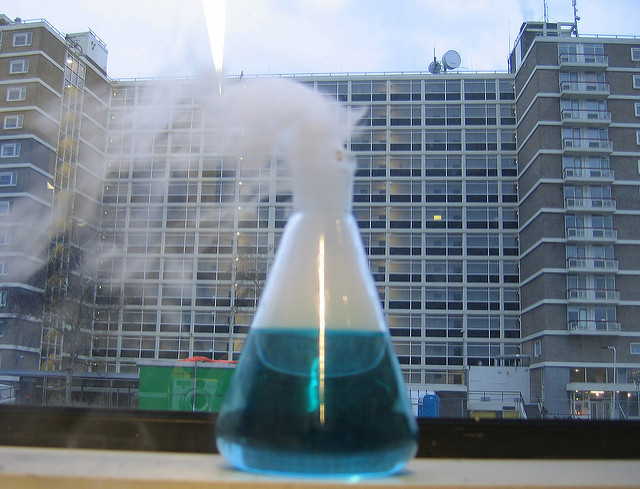FDA uncovers systemic data manipulation in China; India’s pharma lobby rubbishes report on pollution
This week, Phispers brings you news about Wockhardt and how its
turnaround plans are going awry. There is also news about Novo Nordisk ending
development of an oral form of insulin, data manipulation at Beijing Taiyang,
the latest on treatment of high cholesterol and lots more.
Novo ends
development of oral insulin, slashes long term growth forecast
Novo Nordisk – the world’s biggest maker of insulin – slashed its long-term profit-growth forecast by half due to pressure on prices in its largest market – the US. The company is also ending development of an oral form of insulin, which has long been an unattainable dream for the global
pharmaceutical industry.
The Danish pharma company will be relying
more on in-licensing early stage projects and working with external academic
collaborators. Moreover, the company will focus more on diabetes and obesity
adjacent conditions such as nonalcoholic steatohepatitis (NASH), cardiovascular
disease and chronic kidney disease.
In the US, Novo is experiencing payer
difficulties that have resulted in disappointing performance of its modern
insulins. The profit-growth estimate was trimmed to 5 percent from the 10 percent projected in
February this year, as it lost key contracts. The company also saw some
products being excluded from insurance-coverage plans as it promised large
rebates in the US on 2017 prices.
While Novo controls almost half the
global market for insulins, the intermediaries who negotiate prices for insured
patients in the US are opting for cheaper alternatives.
Lower prices and escalating competition
from biosimilars have dimmed prospects for Novo, Sanofi and Eli Lilly & Co.
These pharma companies have been forced to deepen rebates and discounts.
Systemic data
manipulation uncovered at Chinese API manufacturer
The
FDA has issued a warning
letter to Beijing Taiyang Pharmaceutical Industry, a manufacturer of active pharmaceutical ingredients such as diphenyhydramine hydrochloride, a commonly used ingredient in cold preparations.
The warning letter states that FDA investigators “observed systemic data manipulation across the facility.” The investigators documented “unexplained deletions of laboratory test results, discovered that analysts repeated tests until they obtained acceptable results and that the company failed to investigate results that were out-of-specification.”
The
FDA investigators
observed, through a window, a warehouse containing numerous drums bearing the company’s label. “When the investigators
requested access to this warehouse, Beijing Taiyang’s staff barred them from
entering the warehouse to examine the containers,” the letter adds.
The following
day, when FDA investigators were given access to the warehouse, they observed
that a significant number of drums had been removed and were not available for
inspection. The firm also relied on falsified and manipulated test results to
support batch release and stability data.
The FDA had
placed Beijing Taiyang on its import alert list in April of this year.
Wockhardt’s compliance foibles haunt biotech startup Cempra
Wockhardt’s
ambitious turnaround plans received a serious setback last week when Cempra, a
clinical-stage pharmaceutical company focused on developing antibiotics, learnt
that the US Food and Drug Administration (FDA) may not allow it to use an active
pharmaceutical ingredient (API) produced by Wockhardt for approval and in the
commercial use of its product Solithromycin.
Two of Cempra’s products are in advanced clinical development. One of them – Solithromycin – has been successfully evaluated in two Phase 3 clinical trials for community acquired bacterial pneumonia (CABP). Its applications for approval have been accepted by the FDA and the EMA.
The setback to Cempra was the result of an
in-person meeting held with the FDA in late October. The reason for the FDA
decision was an import alert placed on a Wockhardt manufacturing facility in August 2016, several months after Cempra’s New Drug Applications (NDA) with Wockhardt had been submitted and accepted for review by the FDA. Cempra began an active dialog with the FDA to determine if the API produced at Wockhardt prior to the import alert was adequate for the NDA.
While Cempra plans to provide the FDA with data from API sourced from another supplier, the news is a serious setback for Wockhardt’s ambitious turnaround plans to fix its compliance issues and become an antibiotic research powerhouse.
Sanofi-Regeneron’s potential blockbuster runs into manufacturing problems
Last week, Sanofi and Regeneron Pharmaceuticals’ Sarilumab – a product in development for the treatment of moderately to severely active rheumatoid arthritis (RA)—received a setback. The two companies announced that the
US FDA has issued a Complete Response Letter (CRL) regarding the Biologics
License Applications (BLA) for Sarilumab.
The CRL refers to certain deficiencies identified during a routine
good manufacturing practice (GMP) inspection of the Sanofi facility in Le Trait
(France) where Sarilumab is filled and finished. Satisfactory resolution
of these deficiencies is required before the BLA can be approved.
However, Sarilumab performed extremely well in a head-to-head
clinical study against AbbVie’s world best-selling drug, Humira.
The manufacturing glitch was also the only negative in Sanofi’s better than expected earnings report which was released last week in which Sanofi announced that it would exit its European generics business in the next 12 to 24 months.
Cholesterol woes: Raising HDL can’t save you, and new drugs don’t work.
Last year, two new drugs – Rephata and Praluent – that lower cholesterol, came on the market. Back then, analysts had estimated sales of more than US $ 3 billion a year. Working by blocking a protein called PCSK9, the drugs would clear out LDL, or bad cholesterol.
While Sanofi and Regeneron launched Praluent, which is said to succeed where the traditional treatment – an inexpensive class of drugs called statins – fails, Amgen launched Rephata with a similar mechanism of action.
A year on, doctors are reluctant to write prescriptions until they
are sure of the benefits. Similarly, insurers are unwilling to pay for these
drugs.
“These launches so far are close to, if not the biggest, wastes of development and commercial investment in recent industry history,” Geoffrey Porges, a biotech analyst at Leerink, an investment bank specialising in healthcare told STAT News.
There was more bad news for patients suffering from high
cholesterol. A study
published this week has found little evidence that raising HDL, widely known as
good cholesterol, protects against heart attacks and strokes.
The study was published in the Journal
of the American College of Cardiology. The drug industry has repeatedly failed to design a pill that might improve patients’ lives by increasing HDL.
A decade ago, Pfizer spent more than US $ 800 million to get the
HDL-boosting medication torcetrapib into
late-stage trials, only to find that more patients died on the drug than on
placebo. Roche was next to fail when its drug, dalcetrapib, came up
short in a 16,000-patient trial in 2012. And last year, Eli Lilly shut down a
study testing its evacetrapib on 12,000 patients after discovering that the
drug had no effect on heart attack and stroke.
Pfizer fined for violating environmental laws in the US
For the second time in recent years, Pfizer has been fined by the American authorities for violating the
Clean Air Act at a manufacturing plant in Barceloneta, Puerto Rico.
Pfizer
was fined US $ 190,000 for failing to disclose information about hazardous
chemicals that were used at the concerned plant.
In early 2014, the Environmental Protection Agency (EPA) had found that Pfizer stored certain substances — in this case, ammonia and methylamine — that exceeded permitted amounts. This triggered a requirement to file a plan, which Pfizer failed to do and had to be fined. The substances were also used without properly being disclosed to the EPA.
Pharmexcil refutes report on drug-resistant
bacteria
Growing
antimicrobial resistance (AMR) is one of the gravest threats to human health.
Global deaths because of drug-resistant infections are projected to reach 10
million per year by 2050, with cumulative economic losses of US $100 trillion.
A new report by campaigning organisation – Changing Markets – titled ‘Superbugs in the Supply Chain - How pollution from antibiotics factories in India and China is fueling the global rise of drug-resistant infections’ has revealed
the presence of drug-resistant bacteria at pharmaceutical manufacturing sites
in India.
On-the-ground research and analysis of water samples found high levels of drug-resistant bacteria at sites in three Indian cities: Hyderabad, New Delhi and Chennai. Out of 34 sites tested, 16 were found to be harboring bacteria resistant to antibiotics, the report says. At four of the sites, resistance to three major classes of antibiotics was detected, including antibiotics of ‘last resort’, those used to treat infections that fail to respond to all other medicines.
The report says antibiotics manufactured at or near these sites are being exported to United Kingdom’s National Health Service (NHS), French hospitals, and pharma majors including US distribution giant McKesson and French company Sanofi’s generics arm Zentiva.
The report cites
Hyderabad-based Aurobindo Pharma as one of the worst offenders. However, Pharmaceuticals Export Promotion Council of India (Pharmexcil), which is part of India’s ministry of commerce, has termed the report as “fabricated” and “backed by vested interests” to malign the Indian pharma industry—the world’s largest producer of antibiotics.
Aurobindo Pharma’s wholetime director M Madan Mohan Reddy is the chairman of Pharmexcil.
EMA probes Wanbury Pharma; French agency ANSM warns about fake GMP certificates
Mumbai-based
drug manufacturer Wanbury Pharma, which is one of the largest exporters
of diabetes drug metformin, had been served a show-cause notice by the Maharashtra Food and Drug Administration
last week for allegedly re-labelling its drugs that were being exported to
Brazil, Mexico, Bangladesh and Pakistan.
Wanbury has now
come under the lens of the European Medicines Agency (EMA). The EMA is learnt
to be investigating the allegations made by the Maharashtra FDA.
Meanwhile, the
ANSM (French agency for the safety of health products) has been informed of the
use of several falsified GMP certificates under its letterhead for import and export activities of active substances. “Because of a recent increase in observed cases, the ANSM reminds stakeholders that the authenticity of GMP certificates should be checked on EudraGMDP Community database,” the ANSM website says.
Teva
takes a shot at delaying generic Copaxone by writing to FDA
Teva Pharmaceutical has submitted a document to the US FDA explaining
the differences between its original multiple sclerosis drug Copaxone and the generic
product being marketed by Momenta and Sandoz.
In order to enter the
market, the generic version of Copaxone requires both FDA approval and legal
confirmation that it does not violate Teva's patent.
According to analysts,
the document is designed to delay the entry of a 40-mg generic version of
Copaxone into the market (20mg generic Copaxone is already on the market). The
document is also likely to undermine the confidence of FDA officials, leading
to considerable delay in approval of the Momenta's generic drug for 40 mg
Copaxone.
Teva is currently in a
court case concerning the patents that protect Copaxone against generic
competition (for the 40mg version). However, most analysts believe Teva will
lose the case, and that the generic product will be allowed to enter the market
in 2017.
Former Valeant CEO and CFO being probed for accounting fraud
In the US, an ongoing criminal probe into Valeant Pharmaceuticals is focusing on the extent to which the former chief executive officer – Michael Pearson – and former chief financial officer – Howard Schiller – allegedly hid a relationship with a specialty pharmacy – Philidor Rx Services – from insurers.
Pearson was the key
driver behind Valeant’s growth, which relied
on price-gouging as a growth strategy. Pearson bought older medicines and hiked
their prices manifolds to push up profits.
Federal prosecutors are reportedly exploring potential charges of accounting fraud in connection with Valeant’s ties with Philidor Rx Services, a Bloomberg news report said. Valeant used its ties with Philidor to steer
prescriptions and boost reimbursements for its medicines.
For now, the probe is
examining actions taken by Pearson and Schiller, though sources say others,
such as Philidor executives, may also be charged.
Impressions: 4715
This week, Phispers brings to you the latest news from the world of pharma where Merck was found lying under oath, Mylan’s “exceptionally large” drug price hikes reignited the price-gouging debate and data integrity issues surfaced in China. And, a lot more.Dr. Reddy’s acquires products from Teva; but faces penalties in the USThis has been a mixed week for Dr. Reddy’s Laboratories. The company has signed a deal
with Israeli drug maker Teva to acquire a portfolio of eight abbreviated
new drug applications (ANDAs) in the US for US $ 350 million. In April 2015, Teva
had entered into a deal with Allergan
to buy its generics products for US $ 40.5 billion, soon after it failed in its
bid to buy Mylan.
On the flip side, the US Consumer Product Safety Commission
(CPSC) has sought civil penalties against Dr. Reddy’s for failing to report problems with packaging of several medicines. In a 4-1 vote held two weeks ago, CPSC said Dr. Reddy’s knowingly violated federal law as issues with child-resistant blister packs for five prescription drugs were not reported within the mandated 24 hours. The violations had occurred between 2002 and 2011.
After antibiotics in Chinese rivers, it’s metformin in American watersIn June last year, we reported on how antibiotics were found
in the rivers
of China. This week, a
new study has found traces of the widely-used diabetes drug – metformin – and other medicines in dozens of streams throughout southeastern United States. The survey was done on 59 streams and it found an average of six different drugs. The findings suggest the cause of contamination was
unrelated to discharges from wastewater treatment facilities. Metformin
appeared in 89 percent of the samples and 97 percent of the sample sites. Researchers also found traces of tramadol (opioid);
carbamazepine
(anti-seizure drug) and Allegra (antihistamine). At some of the sample sites,
the concentrations of these medicines are expected to affect aquatic life. There was also some good news about metformin this week. Research
has suggested that metformin may exert a long-term protective effect against
neurodegenerative diseases, including Alzheimer's and Parkinson's. Court overturns US $ 200 million jury award; says Merck ‘lied under oath’A federal judge in San Jose found Merck lied
to a business partner and to the court. As a result, the judge threw out a
patent infringement judgment Merck had won against Gilead
Sciences. He also overturned a US $ 200-million jury award. This judgement is considered a landmark one, considering it involves Gilead’s blockbuster drug Sovaldi, a treatment for the hepatitis C virus, and Merck – the world’s fourth-largest drug company. “Merck's misconduct includes...misusing Pharmasset's confidential information..., and lying under oath at deposition and trial,” the federal judge, Beth Labson Freeman, said. This news comes at a time when a review by the US Food and
Drug Administration (FDA)
staffers questioned whether an experimental Merck drug is effective in
treating Clostridium difficile, or C. difficile, the most common cause of
infectious diarrhea in hospitals and nursing homes. Mylan’s ‘exceptionally large’ drug price rise brings pricing debate back in focusPrice gouging has been plaguing the global pharma industry
for quite some time now. During the week, there was news about Mylan and Pfizer
increasing prices. Over the last six months, Mylan
has raised prices by more than 20 percent on 24 products. Meanwhile, Pfizer was in news for increasing the list prices
of its medicines in the US by an average of 8.8 percent. This is the second
time this year that Pfizer
has substantially boosted prices for its prescription drugs. On January 1, Pfizer had raised prices by an average of 10.4 percent. Mylan boosted prices by more that 100 percent on seven other products. Wells Fargo analyst David Maris termed the price hikes as “exceptionally large.” In Europe, the high price of drugs is straining its cash-strapped
health systems and depriving patients of the latest products. Ergo, the European
pharmaceutical industry is considering a radical shift in the way it prices
drugs so that companies are rewarded for the clinical benefit of treatments
rather than the number of pills sold. An internal report prepared by the
European Federation of Pharmaceutical Industries and Association has called for
the removal of external reference pricing and placing curbs on parallel
imports. Interpol’s Operation Pangea IX seizes US $ 53 million worth of illicit medicinesInterpol seized potentially life-threating drugs and goods,
including fake cancer medication, substandard HIV and diabetes testing kits,
counterfeit dental equipment and illicit surgical equipment, through its Operation
Pangea IX. The operation involved targeting illicit online sale of
medicines and medical devices. It involved 193 police, customs and health
regulatory authorities from 103 countries. Operation Pangea resulted in 393
arrests worldwide and the seizure of more than US $ 53 million worth of
potentially dangerous medicines. The operation was supported by private partners from the
Internet and payment industries and saw the suspension of 4,932 websites
selling illicit pharmaceuticals. India’s pharma industry growth dips to two-year lowThe impact of Indian health ministry’s gazette notification banning the immediate manufacture, sale and distribution of 344 fixed dose combination (FDC) drugs has begun to reflect in growth
numbers. The Indian pharmaceuticals market’s growth this May was the lowest in two years, impacted by a drop in sales of FDC drugs, fresh price cuts and a lower than expected uptake, according to pharmaceutical market research company AIOCD PharmaTrack. For May, the pharmaceuticals market grew by 7.7 percent compared to 11.6 percent during the same month last year, reaching sales of Rs 994.76 billion (US $ 14.8 billion) over a 12-month period. India’s FDC market dropped 14.6 percent and is now valued at Rs 1.96 billion (US $ 29.1 million). Valeant may sell stake in Egypt’s largest drug company AmounValeant
Pharmaceuticals International plans to step up its debt-reduction plans and
is considering the sale
of Egyptian drug maker Amoun Pharmaceutical. According to a report, Amoun
may attract drug companies with an interest in expanding in emerging markets.
Valeant is reportedly working with Goldman Sachs Group on the sale. Last year, Valeant had acquired Amoun’s holding company – Mercury Holdings – for around US $ 800 million, along with some contingent payments. Valeant’s intentions at the time were to use Amoun as a platform to further expand in the Middle East and Africa.
GMP problems roundup:
Fresh cases emerge in China, India Beijing
Taiyang Pharmaceutical Industry, a Chinese manufacturer of diphenyhydramine
hydrochloride, a commonly used antihistamine, was placed on the FDA import alert
list in April 2016. Last week, Beijing Taiyang was also placed on Health Canada’s Inspection Tracker List as the regulatory agency evaluated the risk the company’s products posed to patients. The primary reason given for the action was data integrity concerns.
Akums
Drugs & Pharmaceutical Limited is a major Indian contract manufacturer
with nine facilities that mostly supply to the domestic market. Akums’
international expansion plans suffered a setback as its facility in Haridwar (India)
failed its first EDQM (European Directorate for the Quality of Medicines &
HealthCare) inspection. The critical deficiency observed by the
inspectors was the “lack of sterility assurance as there was insufficient
evidence during validation to confirm that all ampoules in the load met the
sterilizing conditions”. There were also deficiencies observed across all
aspects of the quality management system. Akums’ failure is a setback for the Netherlands-based Nordic
Pharma Limited for whom Akums was manufacturing progesterone
injection 50mg/mL ampoules (Gestone). The inspection failure will result in the
recall of four batches from the UK and Ireland and will most likely have Nordic
Pharma retain their existing contract
manufacturer, Hikma
Italia SPA.
Impressions: 4088















